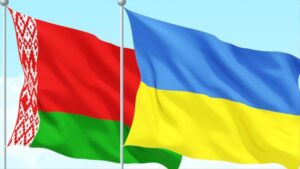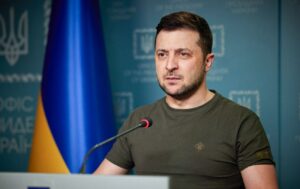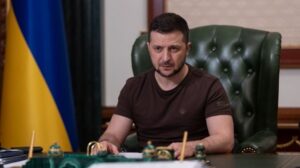
Sales of wine and spirits at auctions held by Sotheby’s in 2022 increased by 14% compared to last year and reached a record $150 million.
The number of liquor auctions for the year increased by a third to 69, The Barron’s wrote, citing a company announcement. This year, Sotheby’s held its first auctions in France, raising a total of $42 million. Earlier auctions were held only in London, New York and Hong Kong.
Asian auctions of spirits brought the company more than a third of the revenue, $54 million. Asian buyers accounted for 41% of total sales in value terms.
Collectible wines are still the main category of drinks put up for auction – their sales amounted to $ 121 million. Meanwhile, spirits are also gradually gaining popularity – sales in this category rose by 15% to $ 29 million, mostly due to the popularity of whiskey with long maturation.
Thus, in October, a bottle of 81-year-old Macallan – the oldest whiskey in the world, ever put up for auction – went under the hammer for 300 thousand pounds ($325,700). However, this is not the most expensive alcoholic lot of the year: in May a case of Chinese liquor Kweichow Moutai was sold for $ 1.1 million, and a bottle of 55-year-old whiskey from Japan’s oldest distillery Yamazaki Distillery was valued at $ 600 thousand.
Among wine auctions of Sotheby’s a special place took the sale of 4.2 thousand bottles of wine from the personal cellars of Prince Robert of Luxembourg for a total of $ 6 million. All proceeds from the auction the prince gave to his charitable foundation.
Kiev Information and Analytical Center “Experts Club” together with a collector of vintage drinks Igor Magalyas holds seminars-tasting of vintage alcoholic beverages and donates part of the funds to charity.

At a meeting on Friday, the Cabinet of Ministers of Ukraine terminated four agreements between the governments of Ukraine and Belarus on military and military-technical cooperation, said Taras Melnychuk, representative of the Cabinet in the Verkhovna Rada in Telegram.
In particular, the agreement between the Government of Ukraine and the Government of the Republic of Belarus on mutual deliveries of arms, military equipment, other material supplies and services for needs of defense and security of December 16, 1994, was terminated.
The agreement on additional confidence and security measures of April 16, 2001, on joint research and development activities in the field of weapons and military equipment of October 18, 2005, and the agreement on mutual protection of rights to the results of intellectual activities created and presented during the bilateral military and technical cooperation of October 18, 2005 were also terminated.

The President of Ukraine has signed a decree on the appointment of Dmytro Senik as Ambassador of Bahrain.
Relevant decree No. 878/2022 was published on the website of the Head of the Ukrainian State.
“To appoint Ambassador Extraordinary and Plenipotentiary of Ukraine to the United Arab Emirates Senik Dmytro Yuriyovych as the Extraordinary and Plenipotentiary Ambassador of Ukraine to the Kingdom of Bahrain concurrently,” the text of the document says.

President of Ukraine Volodymyr Zelensky, by his decrees dated December 23, replaced the ambassadors of Ukraine to the Republic of Bulgaria and the Republic of Latvia.
By decree No. 879/2022, the head of state dismissed Vitaliy Moskalenko from the post of Ambassador of Ukraine to Bulgaria and by decree No. 880/2022 appointed Olesia Ilaschuk to this post.
Also, by decree No. 881/2022, Zelensky dismissed Oleksandr Mischenko from the post of ambassador to Latvia.
“To appoint Anatoliy Kutsevol as Ambassador Extraordinary and Plenipotentiary of Ukraine to the Republic of Latvia,” decree No. 882/2022 says.

More than one million Ukrainians have received winter assistance from the UN Refugee Agency, the Ministry of Reintegration of the Temporarily Occupied Territories of Ukraine reports.
“In recent months, one of the priorities of the Office of the UN High Commissioner for Refugees (UNHCR) is to support Ukrainians during the winter period. First of all, the assistance is aimed at internally displaced persons and other vulnerable categories of the population affected by the war,” the press service of the agency said.
The support program provides temporary housing, materials for repairs and insulation of houses, as well as provision of heaters, blankets, warm clothes and other basic necessities during the cold season. The agency also pays an allowance to cover winter needs.
According to the report, the winter assistance program has already covered more than 1 million people in Ukraine. In particular, more than 800 thousand people received basic necessities (plaids, thermoses, heaters, clothing), almost 300 thousand people received cash payments and more than 12 thousand people received materials for repairs and insulation of houses.
In addition, 55 generators were delivered to critical facilities in 12 regions.

Fifty-two new heating points equipped with generators and other necessary equipment have opened in the capital’s Goloseevsky, Dneprovsky, Obolonsky and Svyatoshinsky districts, Kiev Mayor Vitali Klitschko said in a telegraph feed on Friday.
“We opened 52 new points where people can get warm, recharge their gadgets, get up-to-date information in case of a prolonged lack of electricity and heat in their homes, in Goloseevsky, Dneprovsky, Obolonsky and Svyatoshinsky districts,” he wrote in Telegram.
According to the mayor of the capital, now in Kiev “there are 532 heating points, which the city has prepared (50 of them – equipped tents SES). The business is also involved: more than 100 additional points are provided by entrepreneurs.
As Klitschko noted, the situation with electricity remains difficult. “Recently, we received humanitarian aid from the city of Riga – 49 generators and heat guns, which, in particular, were used to equip additional heating points. Also we received 9 powerful generators from the Danish twin city of Odense. We will install them in the boiler rooms of the capital”, – the mayor reminded.